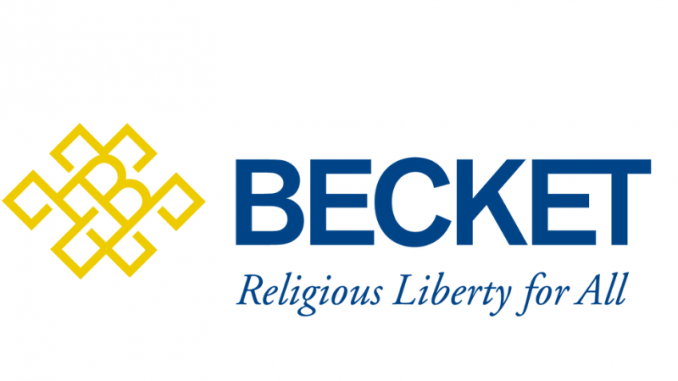
BECKET LAW–
In fall 2022, the Montgomery County Board of Education announced over 20 new “inclusivity” books for its pre-K through eighth grade classrooms. But rather than focusing on basic civility and kindness, these books champion pride parades, gender transitioning, and pronoun preferences for children. For example, one book tasks three- and four-year-olds to search for images from a word list that includes “intersex flag,” “[drag] queen,” “underwear,” “leather,” and the name of a celebrated LGBTQ activist and sex worker. Another encourages fifth graders to discuss what it means to be “non-binary.” Other books advocate a child-knows-best approach to gender transitioning, telling students that a decision to transition doesn’t have to “make sense” and that doctors only “guess” when identifying a newborn’s sex anyway. The teacher’s guide to another book about a playground same-sex romance invites schoolkids to share with classmates how they feel when they “don’t just ‘like’ but … ‘like like’” someone. The curriculum suppresses free speech and independent thinking by having teachers tell students they are “hurtful” if they question these controversial ideologies.
When the Board first went public with its Pride Storybooks, it assured hundreds of concerned parents they would be notified when the books were read and could opt their children out. This meant parents troubled by the books’ blatant disregard for widely held religious beliefs and scientific perspectives would be respected. Upholding parental rights also meant that children would not be subjected to age-inappropriate instruction against their parents’ wishes. Indeed, in Maryland—as in most states across America—teaching family life and human sexuality requires parental notification and the ability to opt-out. Historically, the Board has respected that law, allowing parents to opt their children out of sex ed classes and controversial readings on related topics. The Board’s own “Guidelines” regarding religious diversity go even further. They guarantee that parents may seek opt-outs and alternative assignments for their children on a wide range of potential classroom activities, discussions, and reading assignments. Continue reading…
